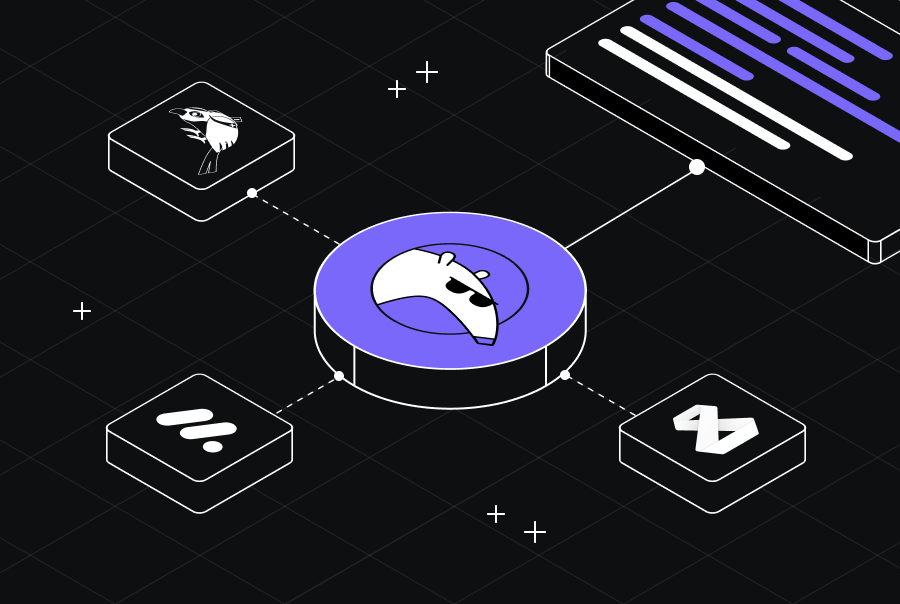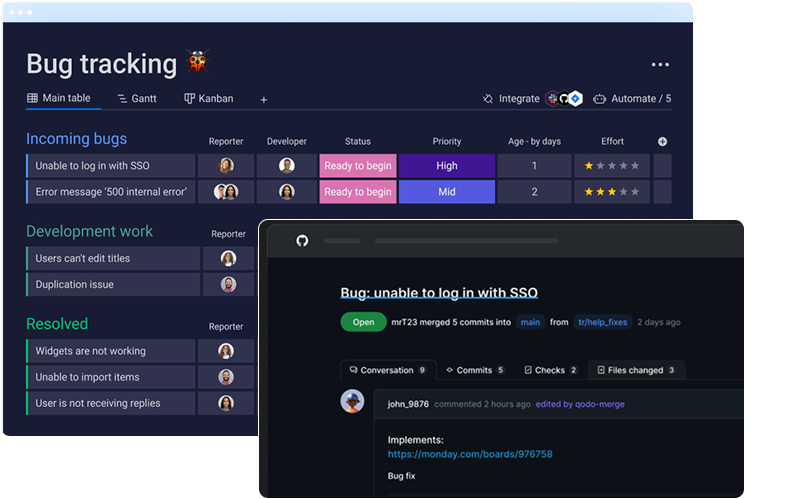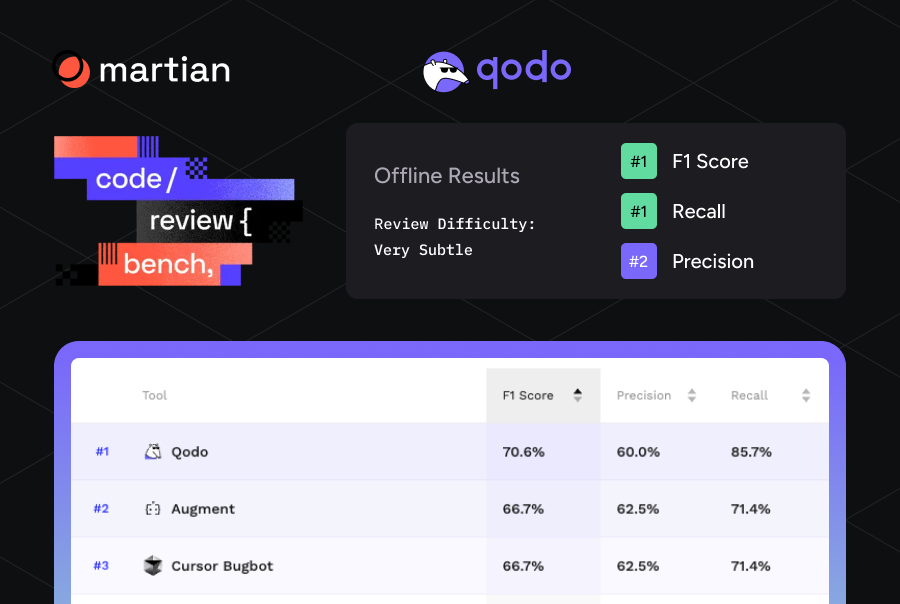Qodo Platform Update: New integrations with monday dev, Visual Studio, and Gerrit


Qodo is rolling out new updates that bring agentic coding and smarter reviews to even more tools and workflows.
Ensuring ticket compliance in code reviews with monday dev integration
Qodo Merge now brings its ticket compliance and workflow alignment capabilities to monday dev. As more organizations adopt monday dev to unify engineering, product, design, and operations, ensuring that every pull request ties back to a tracked task becomes critical. With this release, Qodo Merge connects code reviews directly to monday dev, giving teams stronger visibility, accountability, and alignment across disciplines.

Here’s how Qodo x monday dev works:
- Ticket Compliance Checks: When a PR is submitted, Qodo Merge verifies that it references a valid monday ticket. If there’s no ticket, Qodo Merge will create one automatically.
- Context-Aware Reviews: PR reviews can now incorporate context from monday tasks, ensuring that the code changes align with the broader project scope.
- Automated Enforcement: If a PR doesn’t meet ticket requirements or violates security or compliance rules, Qodo Merge will automatically flag it and provide targeted code suggestions to bring it into compliance
By integrating with monday dev:
- Code connects to company-wide workflows: PRs can now be validated against tickets that product, design, and even business teams are tracking on monday.
- Stronger alignment across disciplines: Engineers reviewing a PR know it maps directly to the same task the product team is monitoring.
- Enterprise flexibility: Many organizations standardize on Monday for all departments. Adding it ensures Qodo Merge is not limited to “engineering-first” tools, but can fit into broader enterprise ecosystems.
Qodo Merge also integrates with Jira and Linear, ensuring ticket compliance wherever you work.
Visual Studio for Agentic Coding
Qodo Gen is our IDE plugin that brings agentic coding flows, like task planning, AI-assisted chat, multi-file edits, and test generation, directly into your development environment.
Until now, Qodo Gen was available for VS Code and JetBrains IDEs. We’re excited to announce that it now fully supports Visual Studio, one of the most widely used IDEs in enterprise and Windows-based development.
Visual Studio has a large footprint in enterprises that build complex, Windows-native applications. Adding support ensures that teams using Visual Studio can now unlock Qodo’s agentic development flows without leaving their IDE. This closes a major gap and moves Qodo closer to full IDE parity.
Features Available Today in Visual Studio
- Agentic coding flows: AI agents with file system and terminal access, capable of reasoning across multiple steps to implement changes or fix issues.
- Advanced context retrieval: Qodo Gen in Visual Studio supports both local and remote retrieval-augmented generation (RAG). That means Qodo can reason over the full structure of your code, including cross-project dependencies, external repositories, documentation, and shared codebases to enhance understanding.
- Custom agent workflows and modes: Create and manage specialized agents tailored to specific workflows, allowing for greater control over behavior, output, and tool usage.
Gerrit Workflows with Qodo Command + Merge MCP
Gerrit is a widely used Git server that provides a powerful workflow for managing repositories and enforcing structured review processes. Many large organizations—especially in industries like telecom, finance, and embedded systems—rely on Gerrit to handle both Git hosting and review enforcement at scale.
Teams can now create workflows that respond directly to Gerrit webhooks. This allows Gerrit events, such as a new patchset or review update, to automatically trigger Qodo-powered actions.
How it works:
- A developer sends a request to change the main codebase in Gerrit.
- That request automatically triggers Qodo Command.
- Qodo Command then uses the Qodo Merge MCP to generate a description and code suggestions.
- Qodo Command posts those suggestions right back into Gerrit.
Why it matters
Many large organizations still rely on Gerrit for their code review workflows, especially in telecom, finance, and embedded systems. This integration brings Qodo’s AI-assisted review capabilities into Gerrit environments without forcing teams to switch tools.
Integration Highlight: Code Reviews in GitLab
Qodo Merge isn’t new to GitLab, but it’s worth highlighting just how deeply it integrates with your existing workflows. Within GitLab, Qodo Merge provides real-time, AI-driven analysis of merge requests, helping teams catch issues early and keep reviews moving quickly.
What You Can Do with Qodo in GitLab
- Auto-enrich merge request descriptions with clear summaries and visual diagrams of impacted code.
- Get an instant overview of complexity, security risks, and missing test coverage.
- Apply in-line code suggestions or refine them via chat without leaving GitLab.
- Enforce “must-pass” rules such as ticket links, coverage requirements, or security checks.
Smarter Reviews with Context
Unlike basic static analysis tools, Qodo Merge goes beyond single commits. It can reason across:
- The current repository
- Other repositories in your GitLab instance (to spot duplication, dependency issues, or best practices)
- Organizational guidelines (from Confluence, Google Docs, Wikis, or custom compliance rules)
This means feedback isn’t just syntactic — it’s contextual, grounded in your actual codebase and standards.
These updates bring Qodo closer to seamless support across the tools and workflows developers use every day. And we’re just getting started—stay tuned for more updates coming soon.


